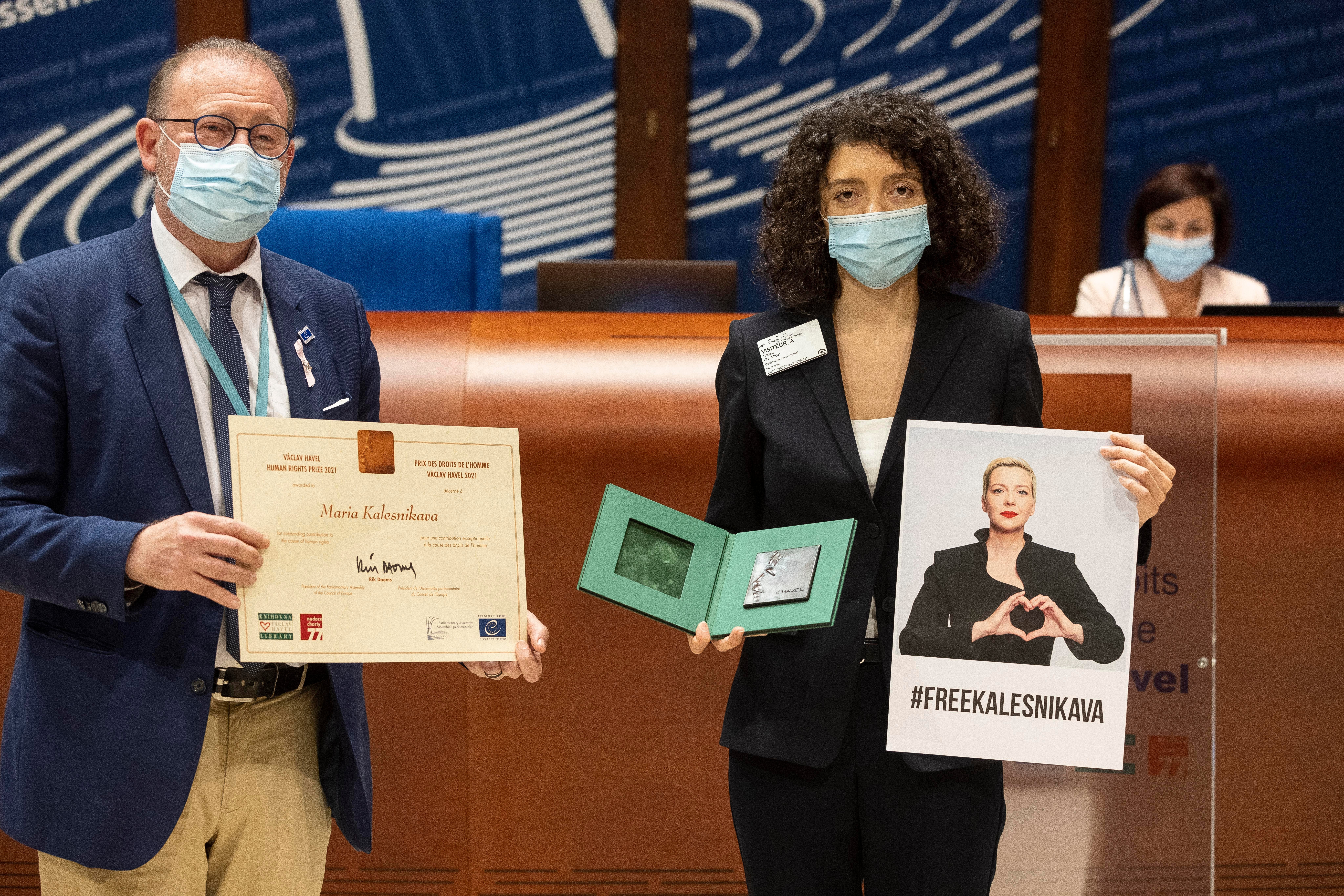Jailed Belarus opposition leader wins European rights prize
The Council of Europe has awarded its human rights prize to jailed Belarus opposition leader Maria Kolesnikova

The Council of Europe on Monday awarded its major human rights prize to jailed Belarus opposition leader Maria Kolesnikova who was arrested last year after she tore up her passport at the border to prevent her forced expulsion from the country.
Earlier this month, a court in Minsk found her guilty of conspiring to seize power, creating an extremist organization and of calling for actions damaging state security and sentenced her to 11 years in prison.
At a ceremony in Strasbourg, France, the Parliamentary Assembly of the Council of Europe awarded her its ninth Vaclav Havel Human Rights Prize, which honors outstanding civil society action in the defense of human rights. The award is worth 60,000 euros ($70,160).
Belarus was rocked by months of protests after President Alexander Lukashenko was awarded a sixth term after the August 2020 presidential vote that the opposition and the West denounced as a sham. He ordered a huge crackdown that saw more than 35,000 people arrested and thousands beaten by police.
“In standing up against a regime which has chosen force and brutality against peaceful and legitimate protest, Ms. Kolesnikova showed that she is ready to risk her own safety for a cause greater than herself – she has shown true courage,” assembly President Rik Daems said as he presented the award.
Accepting the prize on her sister's behalf, Tatsiana Khomich said: “This award is a sign of solidarity of the entire democratic world with the people of Belarus. It is also a sign to us, Belarusians, that the international community supports us, and that we are on the right track.”
Kolesnikova, 39, has been a key opposition activist. She appeared at political rallies, fearlessly walking up to lines of riot police and making her signature gesture — a heart formed by her hands.
The former flautist in the Belarus philharmonic orchestra led the campaign of Viktor Babariko, the head of a Russian-owned bank who made a bid to challenge Lukashenko, but he was barred from the race after being jailed on money laundering and tax evasion charges that he dismissed as political.
Kolesnikova then joined forces with former English teacher Sviatlana Tsikhanouskaya, who was running in place of her jailed husband Sergei, an opposition blogger, as the main candidate against Lukashenko, and Veronika Tsepkalo, the wife of another potential top contender who fled the country fearing arrest.
The three appeared together at colorful campaign events that came in stark contrast to Lukashenko’s Soviet-style gatherings.
In September 2020, KGB agents drove Kolesnikova to the Belarus-Ukraine border in an attempt to expel her. In the neutral zone between the two countries, she managed to rip up her passport, broke out of the car and walked back into Belarus, where she was immediately arrested.
The Council of Europe has 47 member countries, including Russia but not Belarus, and is the continent’s leading human rights body. It is not part of the European Union.